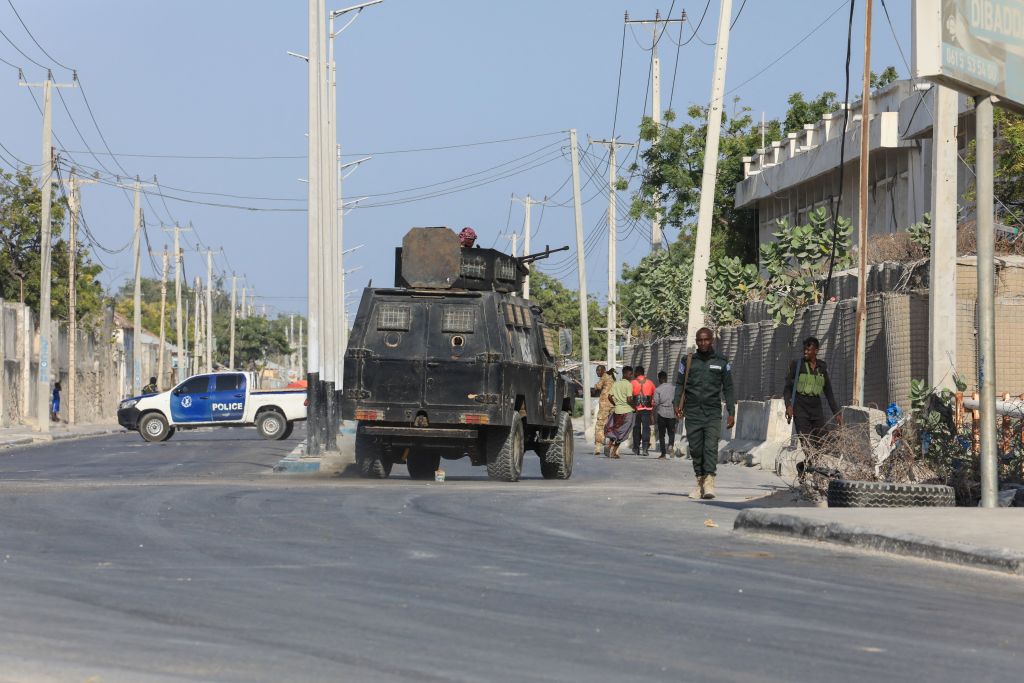Somalia Launches 2nd Offensive Against al-Shabaab Strongholds in the South
ADF STAFF
After scoring key victories against Al-Shabaab in late 2022, Somalia has launched its second offensive against the extremist group with the goal of driving it out of the central and southern regions of the country.
Somali President Hassan Sheikh Mohamud announced the new offensive in late March. Somali Soldiers and their tribal allies will use the experience they gained during the first offensive to make the second round of operations even more successful, the president said.
“We have more experience than when we first entered the war in Galmudug and Hirshabelle states,” Mohamud said this year as the first offensive ended. “We’ve learned the tactics of al-Shabaab. Our morale tells us that we can defeat them.”
Ultimately, the new strategy aims to put an end to the decades of violence that have disrupted the lives of generations of Somalis.
The first wave of attacks on al-Shabaab was focused in the Middle Shabelle region surrounding the national capital, Mogadishu. During that offensive, which ran from August 2022 to January 2023, the Somali Army liberated 70 communities such as Rage-El, a village where residents joined the Army’s fight last August after 13 years under al-Shabaab.
“The people were living in agony,” 80-year-old Mohamud Adow, a village resident who took up arms, told the Associated Press.
The first offensive reclaimed about one-third of the territory under the control of al-Shabaab. It also killed more than 3,000 of the group’s fighters and injured more than 3,700 others, according to Somalia’s Ministry of Information.
The Somali Army has received training and weapons from international allies, including the United States, Turkey, and ATMIS, the African Union Transition Mission in Somalia. However, Somali leaders stress that their Soldiers are leading the assault with the help of fighters from clans that have turned against al-Shabaab.
“[Al Shabaab] is facing you, Somali soldiers who are well-trained, battle-hardened, who took the battle towards the front lines,” Kamal Dahir Hassan Gutale, national security adviser for Prime Minister Hamza Abdi Barre, told Voice of America. “The Somali people and their government made possible all those successes reached by our security forces in a very short time.”
Gutale dismissed claims by an al-Shabaab leader that the first offensive failed to accomplish its mission.
“Let him face them,” Gutale said, daring the terror leader to face Somali Soldiers. “They have liberated over 500 kilometers from Al-Shabaab and still they are after him.”
Analysts say recent gains have been due, in part, to the extremist group’s own actions, which have angered people who live in the regions under their control.
“As the endless drought intensified in early summer 2022, the al-Qaida-linked al-Shabaab reacted with typical brutality,” wrote Vanda Felbab-Brown of the Brookings Institution. As drought and economic strain have increased, Al-Shabaab has continued to press people for “taxes” to support its operations.
Backed by clans and international allies, the Somali Army’s second offensive is pushing deeper into al-Shabaab’s southern strongholds in Jubaland.
As the offensive progresses led by Somali special forces, the government provides clan militias with logistical support, ammunition, food and medical evacuations. The clans, in turn, connect the Army to the local populations and demonstrate that portions of Somalia’s populations have turned against Al-Shabaab, according to the International Crisis Group.
As Somali troops and their allies free communities from al-Shabaab, Mohamud has emphasized the government’s commitment to stabilizing and bringing public services to those areas to fend off any attempt by extremists to return.


Comments are closed.